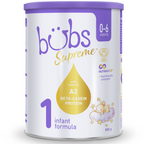Signs of Baby Teething
Teething is often viewed as a milestone in infant development. By the time the first little teeth emerge, the early, exhausting days of newborn care have settled into a fairly predictable rhythm. Many parents are apprehensive about potential changes in their baby’s behaviour when they start to teethe. “Can I expect my baby to wake more through the night”? “How do I prepare for hours of holding and soothing”? These and other concerns can plague the most confident of parents.
For most babies, teething does not deserve the bad wrap it gets. Many just grow through the stages of tooth eruption without too much drama or changes in their daily routine. It’s fair to say though, that some babies do become a little more miserable when they’re teething, and need extra soothing and tenderness. Knowing what to do at these times can help.
How to Prepare for Baby Teething?
Every parent has heard of teething. Some wait anxiously for the first sign of their baby’s drooling and others? Well, they just wait to see what happens. Generally, the best approach is to take a relaxed attitude to baby teething. Remind yourself that every baby is an individual. Teething, like all other aspects of your baby’s growth, may well have its challenges. However, don’t assume you’re in for a rollercoaster of a ride as your baby’s little choppers come through. Like most other milestones, teething is best viewed as a normal part of infant development. It will come and it will go. You’ll survive it and so will your little one.
How Long Have You Had That?
Some parents just happen to look in their baby’s mouth one day at around six months, and see one perfect little tooth sticking through their baby’s gum. Others herald the coming of the first tooth long before it’s even erupted from the jawline.
Its Important To Remember...
Teething is a normal stage of development. By the time your child is around 3 years old and has their full complement of 20 baby teeth, you’ll have spent many hours getting used to the teething business. Treat teething symptoms if you need to. But don’t assume your baby’s behaviour is due to teething discomfort.
What Are the Signs of Baby Teething?
- Fussiness
- Irritability
- Changes in sleep and settling behaviour
- Extra dribbling/drooling
- Changes in appetite
Around four months of age, saliva production increases. Parents commonly interpret this extra moisture as a sign that teeth are coming through. Normally at this early stage, dribbling and drooling are, instead, a sign that the salivary glands are working efficiently. Saliva contains an enzyme that helps with digestion, especially starch. When solids are introduced into the diet at around 6 months of age, an enzyme in the saliva called ptyalin helps in the pre-digestion of starch. This is further broken down in the baby’s stomach.
Five Unusual Signs of Baby Teething
- A more distinct ‘ammonia’ type smell to the baby’s urine
- More frequent, loose poos which may contain visible mucous
- Nappy rash – this is often red and the skin sensitive
- Red, shiny cheeks
- Swatting or pulling at the ears
What Aren't Teething Symptoms?
An elevated temperature, diarrhoea or rashes are not signs of teething. If your baby has any of these symptoms, it’s important that your baby is checked by a qualified nurse or healthcare professional.
Ouch, You Bit Me!
Breastfed babies who are teething can bite down on their mother’s nipple during feeds. Understandably, this can cause intense pain. Calmly take your baby off the breast and temporarily finish the feed. Eventually, most babies get the message not to bite. It can take a few times of consistently stopping the feed before they understand.
It All Started When They Were Teething
It’s easy to fall into negative habits over the course of teething. Many parents find themselves resorting to strategies that provide quick relief from teething symptoms, such as cuddling or feeding to sleep, co-sleeping and snack feeding. Knowing what’s fair to expect and provide in terms of care can really help to avoid problems continuing long after the teeth have erupted.
What’s All the Fuss?
Teething symptoms can mask other problems such as illness or overtiredness. “It’s teething” is the default response at those times when it’s hard to know why a baby is fussing. It’s impossible to know with 100% accuracy why babies behave as they do. Parenting is not an exact science, and even the most sensitive and attuned parents can struggle to find reasons why their baby is fussing.
Ruling out illness is an important strategy when assuming teething is to blame. What to look for, and what symptoms warrant a doctor’s check, can be both reassuring and important. Tired, exhausted parents are often not in the best position to make objective assessments of their baby’s needs. This is why it’s useful to have a checklist of symptoms that are not generally teething-related.
Remember,
Make an appointment with your child health nurse for more information about your baby’s teething. Also, speak with your dentist for specific information about your baby’s teething ages and stages.


